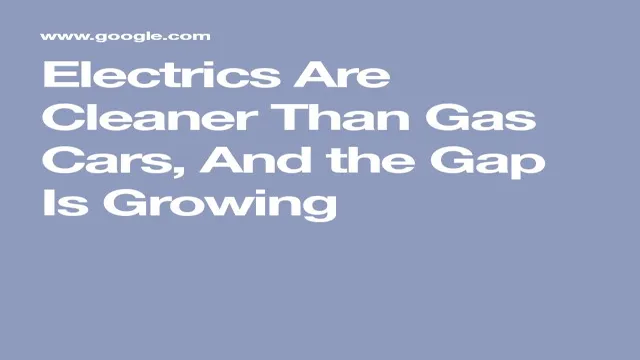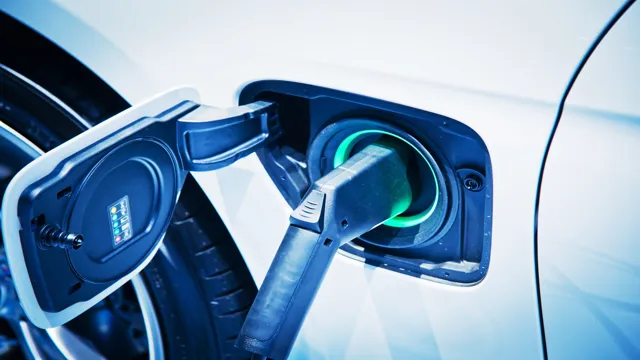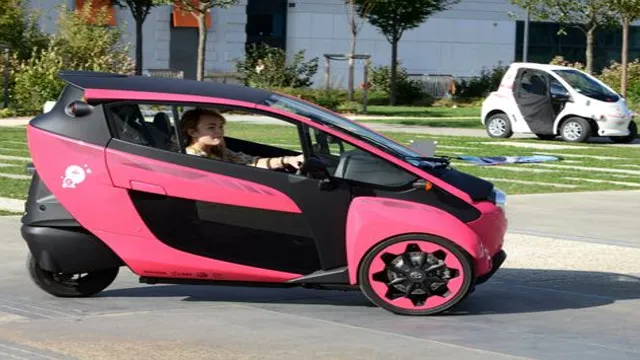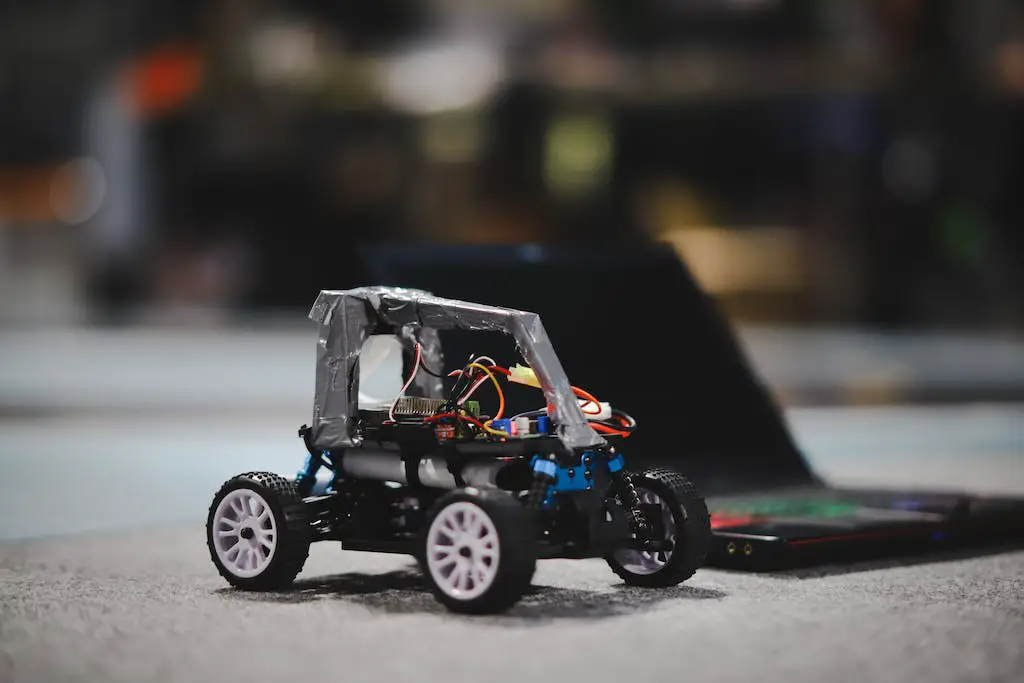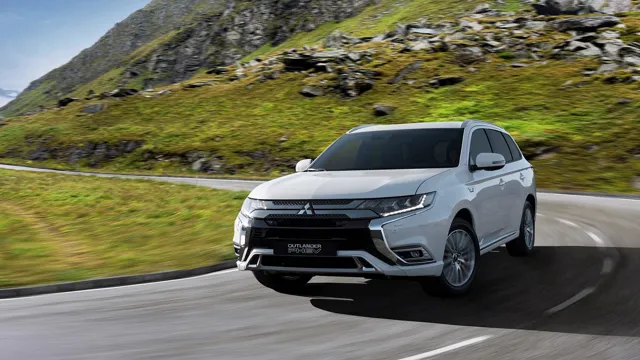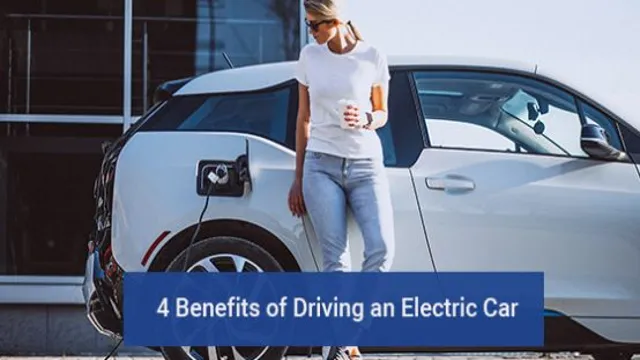Why Electric Cars Alone Can’t Save Our Planet: The Hard Truth Revealed
There’s no denying that electric cars are an exciting and innovative technology that has taken the automotive industry by storm. They promise to revolutionize our transportation sector while reducing our carbon footprint and helping save the planet. However, recent studies suggest that electric cars may not be the silver bullet solution that we’ve been hoping for in the fight against climate change.
While they certainly have their benefits, electric cars alone won’t be enough to stave off the impending environmental crisis that we find ourselves facing. In this blog, we’ll explore the reasons behind this and offer alternative solutions to help us tackle this pressing issue. So buckle up and join us as we delve deeper into this topic!
Misconceptions About Electric Cars
While electric cars are not a cure-all solution to the planet’s environmental problems, the idea that they will not contribute to its salvation is a common misconception. It is true that electric vehicles still have a carbon footprint, but it is significantly lower than that of traditional gas-powered cars. Electric cars release zero emissions on the road, which cannot be said for their gas-guzzling counterparts.
Furthermore, as renewable energy sources become more prevalent, the carbon footprint of electric cars will continue to decrease. The key is to recognize that electric cars are not a silver bullet, but rather one part of a larger solution. By reducing our overall reliance on fossil fuels, businesses and individuals alike can make a meaningful impact in the fight against climate change.
So while electric cars may not be the lone savior of our planet, they will still play an important role in helping us move towards a sustainable future.
Data on CO2 Emissions from Manufacturing Electric Cars
“CO2 Emissions from Manufacturing Electric Cars” There is a common misconception that electric cars are entirely emissions-free, but this is not entirely true. While electric cars do not emit harmful pollutants while driving, the manufacturing process of these vehicles is associated with a significant amount of carbon emissions. The production of electric vehicles requires a complex supply chain process, which includes the extraction and processing of raw materials, such as lithium-ion batteries, and the transportation of components to the assembly plant.
All these processes typically require energy inputs, which, for now, come predominantly from non-renewable sources such as coal, oil, and natural gas. As a result, electric vehicles’ production has a carbon footprint that is about 15% higher than conventional gasoline cars. It is essential to consider this fact when choosing to buy an electric car as the emissions from manufacturing contribute to the car’s lifetime carbon footprint.
However, as the world shifts to renewable energy sources and more efficient manufacturing processes, this carbon emission-related issue can be eradicated.
Electric Cars Still Need Energy to Power Them
One common misconception about electric cars is that they don’t require any energy to power them. While it’s true that they don’t use gasoline or diesel fuel like traditional cars, they still need energy from a power source. In fact, electric cars rely on electricity from batteries to run their motors and power their systems.
These batteries need to be charged regularly, either by plugging the car into an electrical outlet or using a specialized charging station. It’s important to remember that the electricity used to charge an electric car still comes from a power plant, which may or may not be using green energy sources. Therefore, it’s crucial to be mindful of where your electricity is coming from if you want to reduce your carbon footprint.
Alternative Solutions to Save the Planet
While electric cars have been touted as a solution to reducing our carbon footprint, they are far from the panacea for saving the planet. There are alternative solutions that can help us achieve a more sustainable future. For one, individuals can reduce their meat consumption as the livestock industry is a significant contributor to greenhouse gas emissions.
Another way is to opt for public transport, cycling, or walking instead of driving. Implementing sustainable agriculture practices and investing in renewable energy sources are also crucial steps in protecting our planet. While electric cars can make a small dent in reducing our carbon emissions, they alone cannot save the planet.
We all need to play our part and make conscious decisions to reduce our impact on the environment.
Renewable Energy Sources
Renewable energy sources are becoming increasingly popular as we search for alternative solutions to save our planet. Unlike fossil fuels, which are finite, renewable energy sources are replenished naturally and won’t run out. Solar, wind, hydro, and geothermal energy are examples of renewable energy sources that are being widely used today.
Solar energy, for instance, captures energy from the sun and converts it into electricity through photovoltaic cells. Wind turbines, on the other hand, generate electricity by harnessing the wind’s energy. Hydroelectric power uses water flowing through turbines to generate electricity, while geothermal energy utilizes heat from the earth’s core.
The use of renewable energy sources has significant environmental benefits, as it reduces greenhouse gas emissions and reduces our reliance on non-renewable sources of energy. With the increasing need to protect our planet, renewable energy sources have become an essential component of our energy mix.
Improving Public Transportation
Improving public transportation is one of the most effective ways to reduce carbon emissions and help save the planet. Instead of relying on private vehicles, people should be encouraged to use public transportation, which is more efficient and less polluting. Fortunately, there are alternative solutions to make public transportation even more appealing.
For instance, electric buses and trams are becoming increasingly popular, as they emit no harmful pollutants and are more cost-effective in the long run. Additionally, smart technologies can be employed to track traffic patterns and optimize routes, reducing wait times for passengers. By implementing these alternative solutions, we can work towards a future where public transportation is a viable, sustainable, and attractive choice for all.
Let’s do our part to protect the planet, one bus ride at a time.
Reducing Meat Consumption
Reducing meat consumption is one of the most talked-about solutions to save the planet. With animal agriculture being responsible for a significant chunk of global greenhouse gas emissions, it is evident that making a change in our diets is crucial. However, it might not be easy for everyone to give up on their love for meat.
Thankfully, there are alternative solutions that one can consider. For instance, plant-based meats and dairy products are becoming increasingly popular, and they offer a sustainable alternative to traditional animal products. Furthermore, reducing meat consumption doesn’t necessarily mean giving up on it altogether.
Instead, it can be done gradually by incorporating meatless meals in our diets. Making a conscious effort to reduce meat consumption can have a significant impact on the environment. As more people begin to understand the importance of sustainable living, the demand for plant-based products is expected to rise.
Additionally, choosing to reduce meat consumption doesn’t have to be a difficult transition. There are numerous tasty and nutritious plant-based alternatives that promise to satisfy any carnivorous cravings. Most importantly, reducing meat consumption not only helps the planet but also promotes a healthier lifestyle, where plant-based foods are known to be beneficial for our overall health.
In conclusion, reducing meat consumption is a step towards a more sustainable future. By choosing plant-based alternatives and incorporating meatless meals in our diets, we can reduce our carbon footprint and contribute positively to the environment. Besides, it is not a sacrifice but rather an opportunity to explore new, healthier, and more sustainable food options.
Ultimately, making a conscious decision to reduce meat consumption is a small change that can have a massive impact on the planet.
The Role of Electric Cars in Protecting the Environment
While electric cars are often touted as a solution to environmental concerns, the reality is that they will not save the planet on their own. While they emit fewer greenhouse gases than traditional gasoline-powered cars, the production of electric cars still has an environmental impact. In addition, the batteries used in electric cars contain materials that can be harmful to the environment if not disposed of properly.
To truly protect the environment, we must also focus on reducing our consumption and transitioning to renewable energy sources. Electric cars can play a role in this effort as part of a larger strategy, but they are not a panacea. It’s important for us to be realistic about what electric cars can and cannot accomplish as we work toward a more sustainable future.
Electric Cars as Part of a Comprehensive Solution
As the world becomes more environmentally conscious, electric cars have become increasingly popular. These vehicles offer a cleaner alternative to traditional gas-powered cars and can help reduce carbon emissions. They are also more energy-efficient, making them an essential part of a comprehensive solution to our environmental problems.
Electric cars use renewable energy sources, such as solar or wind energy, to power their engines, hence reducing the reliance on non-renewable fossil fuels. Their ability to recycle energy through regenerative braking also makes them much more efficient than gas vehicles. However, the adoption of electric cars should not be seen as a silver bullet for environmental problems.
Instead, it should be integrated into a broader solution that includes other sustainable practices such as using public transportation, walking, and biking. By doing so, we can minimize our carbon footprints and keep the environment safe for future generations.
Potential for Future Improvements in Electric Car Technology
Electric cars have the potential to play a significant role in protecting the environment, thanks to their low carbon emissions compared to traditional gasoline-powered vehicles. The shift towards the adoption of electric cars is gaining momentum, with governments and automotive manufacturers around the world investing in the development of new technology to improve the driving range and charging infrastructure of electric vehicles. One such potential development could be in the form of solid-state batteries, which are safer, lighter, and more efficient than traditional lithium-ion batteries.
In addition, innovations such as in-wheel motors and regenerative braking systems could further boost the efficiency and performance of electric cars while reducing their environmental impact. While electric cars are not a silver bullet solution to climate change and pollution, they represent a significant step forward towards a more sustainable future.
Conclusion
In the end, it’s clear that electric cars alone will not save the planet. While they offer a promising step towards reducing carbon emissions in the transportation sector, they still rely heavily on fossil fuel-powered electricity grids and the production of lithium-ion batteries is far from environmentally friendly. Ultimately, to truly mitigate the damage of climate change, we need to address and change our consumption habits, decrease our reliance on fossil fuels, and prioritize sustainability in every aspect of our lives.
So, let’s not rely solely on electric cars to save the day – after all, the planet needs us to do more than just switch our commute to electric horsepower.”
FAQs
Why do people believe that electric cars will save the planet?
People believe that electric cars will save the planet because they emit fewer greenhouse gases than traditional gasoline-powered cars.
Are electric cars truly the solution to reducing air pollution?
While electric cars may emit fewer greenhouse gases, they still require energy from power plants that may use fossil fuels, ultimately contributing to air pollution.
Will the use of electric cars be enough to combat climate change?
No, electric cars alone will not be enough to combat climate change. It will take a variety of solutions including renewable energy sources and reduced consumption of resources.
Do electric cars have any negative environmental impacts?
Yes, while electric cars produce fewer emissions, the manufacturing process for batteries and the disposal of them after their use can have negative environmental impacts.


